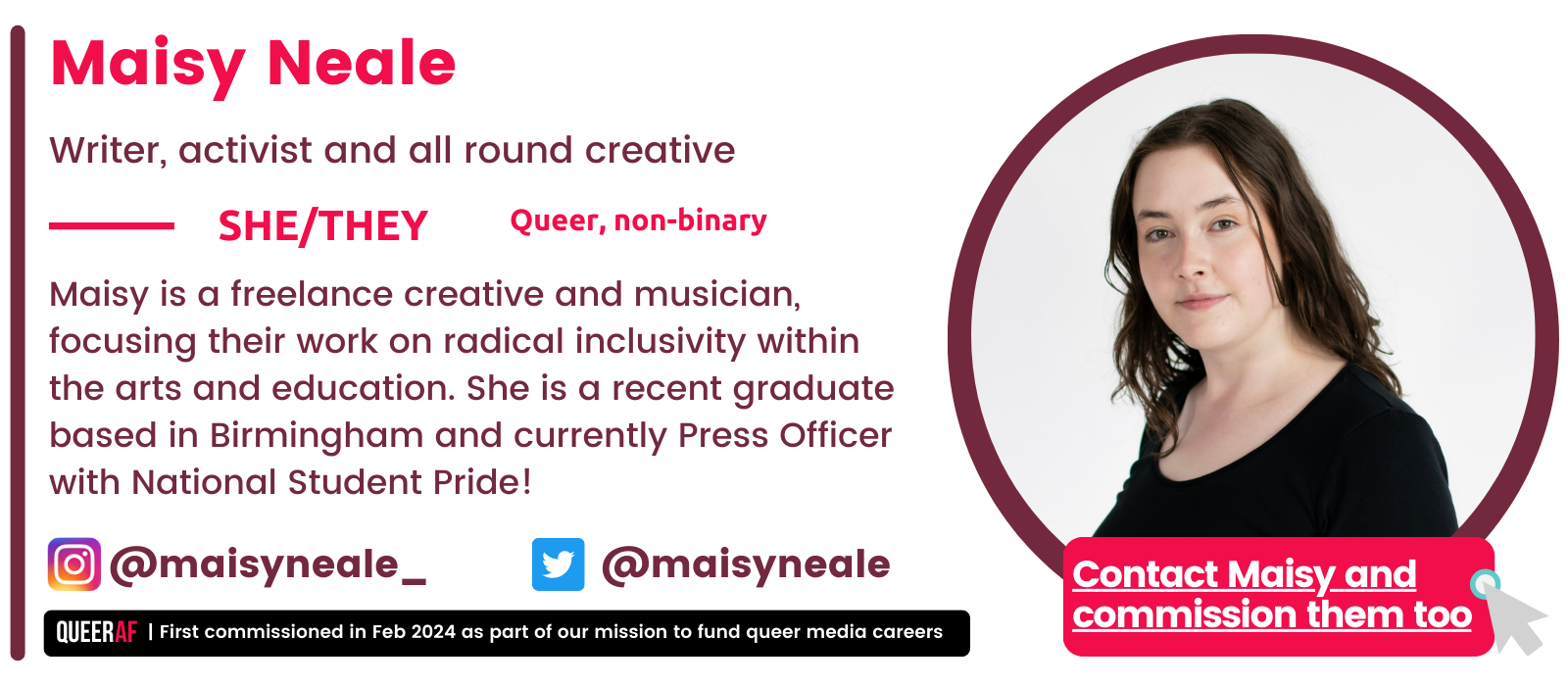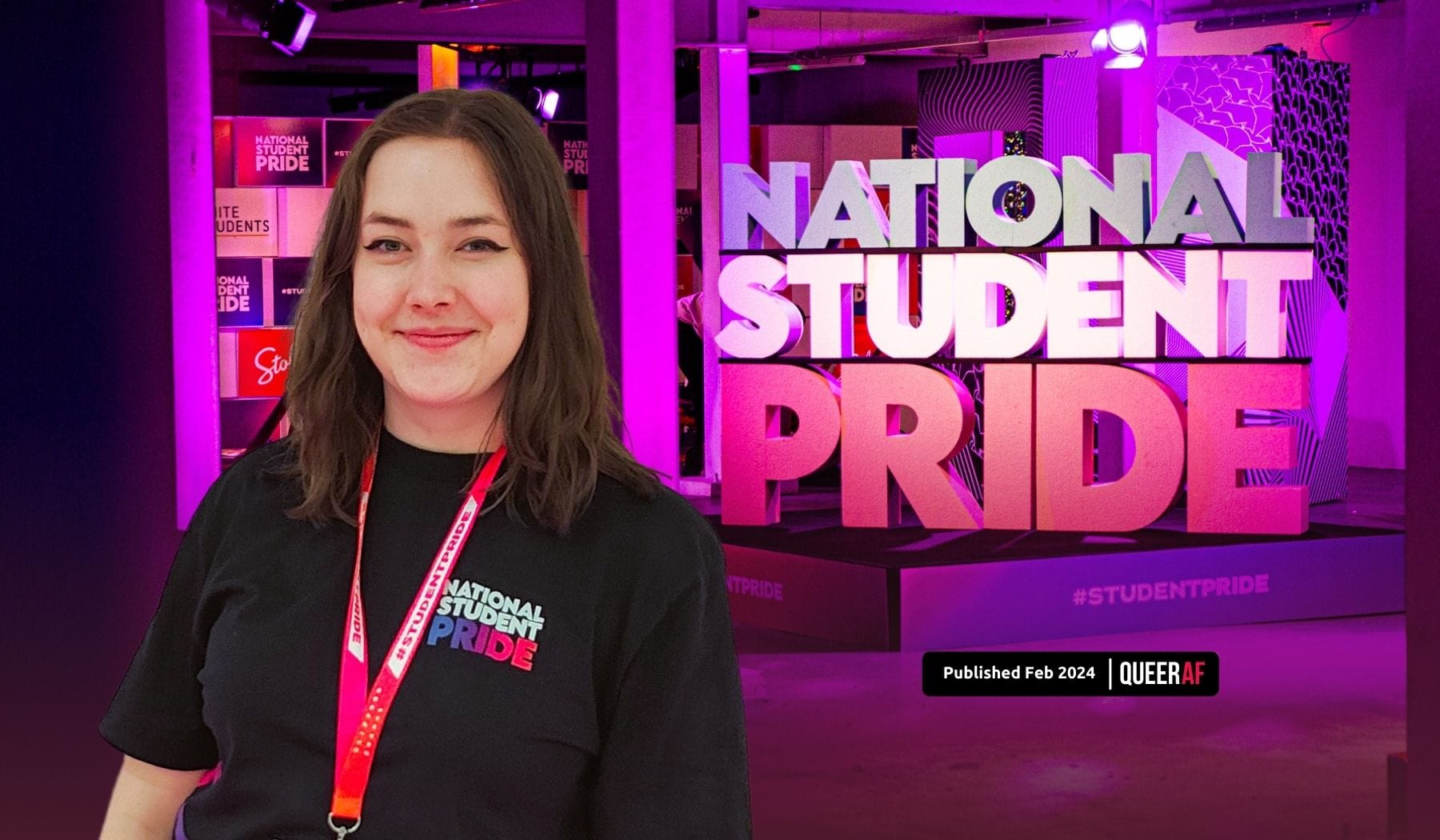
TL;DR: Being a queer student on campus is inherently political. But despite government policies and legislation limiting students’ unions from protecting students from anti-trans views, students are still leading the fight for safe spaces on campus to explore and express their identities.
Students are often neglected and overlooked in government policy or viewed as the irrelevant demographic who don’t vote, whilst LGBTQIA+ people are used as cheap laughs or political comebacks in parliament.
Yet, being queer on campus is inherently political. Your identity might become the topic of society debates. Your gender could be the subject of a transphobic sticker campaign.
National Student Pride, the largest gathering of LGBTQIA+ students in the UK, takes place next week. Attendees will debate the looming general election - whatever the government may think of us, we’re taking our votes seriously.
The very nature of being on campus means we become versed in the nature of politics
The attitudes of universities, students’ unions and the societies within them can be full of internal politics, but government attitudes have had a much bigger impact on the student experience in the last year.
The little-known policy changes set out in the Higher Education (Freedom of Speech) Act 2023 will limit the ability of even the most supportive students’ unions to tackle transphobia on campus.
When the bill was debated in parliament, Labour MP Bell Ribeiro-Addy said the implication would be that students’ unions would no longer be able to depend on the government to protect them, and that “the Bill stops them [SUs] from protecting their members”.
The bill will prevent universities and students’ unions from taking an active stance against transphobic attitudes and events, as it protects so-called ‘gender critical’ beliefs. This allows staff, students and visiting speakers to take legal action if they are no-platformed by a higher education institution.
And it’s part of a broader debate about ‘academic freedom’ - a concept that allows some hateful attitudes to go largely uncontested on campus. Tellingly, it makes the news much more regularly than any other academic issue.
Just this week, the University of Edinburgh was embroiled in controversy after the LGB Alliance supporter Simon Fanshawe was appointed Rector. The post has historically been chosen by an election of the student body.
Whilst navigating being queer at university, I spent two years in the Christian Union, where I was involved in internal debates around sexuality and religion. I felt unsafe to express myself due to the attitudes that surrounded me.
Organisational fears around protecting freedom of speech, heightened by the initial stages of the Bill, meant tackling this became a losing battle.
My experiences in the Christian Union are why I joined National Student Pride
The organisation was founded in 2005 to challenge a homophobic talk on “Homosexuality and the Bible”, organised by the Christian Union at Oxford Brookes.
I resonated personally with founder and director Tom Guy’s reasoning for starting this student event, and knew it was something I needed to be a part of.
I realised the issues I’d faced on campus were far more widespread and rooted in much broader political campaigns. It was scary, but it also offered me the opportunity to be part of something bigger. Now I am part of a team leading important conversations for LGBTQIA+ students.
University is where I properly came to terms with my identity, although it is ever-changing and developing. But are universities safe spaces for this exploration?
The impact of outspoken attitudes from political leaders and legislation on the way universities can handle LGBTQIA+ student issues is making it more difficult to keep queer students safe. This year’s general election could bring change - this will be in the minds of many queer students when they go to the polls.
What I know for sure from working with committed queer students up and down the country is they are determined to fight back against this on-campus clampdown.
To make education centres a safe place to be queer.
National Student Pride’s ‘Queer Question Time’ will see students demand answers from political leaders ahead of the general election. Hosted by LBC’s Natasha Devon, it will take place on the main stage of the event in London 23-25th Feb 2024. 2,000+ attendees will be there for a weekend of parties, panels, an LGBTQIA+ careers fair, and more. Free daytime tickets or £10 weekend wristbands and Sunday Drag Brunch bolt-on tickets are available now. QueerAF is a media partner of National Student Pride.


What happens on campus in further and higher education is often a sign of what's to come in society.
That's usually a theory that I draw a great deal of hope from. But in the current climate, that mood music is more complex.
But as Maisy Neale sets out here ahead of National Student Pride 2024, the wider political clampdown on LGBTQIA+ people in the UK is impacting campus life.
Still, while a few academics with fringe anti-gender views try to push prejudiced views onto campus through the guise of 'academic freedom', students are pushing back.
This undervalued section of the UK voter base is politically aware and prepared to take action to secure their futures.
In one of my first jobs after graduating, my editor told me to stop pitching "gay stories" because there was no "money" or "audience” in them. Fresh from my time on campus, I continued my on campus energy into my career.
Here we are, eight years later - thanks in part to support from National Student Pride, who funded the first four seasons of our podcast - not only with an international audience but also generating funds to change the media industry, so no editor has those torrid takes again.
We need your support to further our unique approach to queer journalism - telling stories because they count, not for clicks - while skilling up a new generation of queer creatives.
If you can, consider supporting what respected Trans+ journalist and last week's contributor Jess O'Thomson describes as "one of the best publications doing queer journalism I know of".
Become a QueerAF member from just £4 a month.










